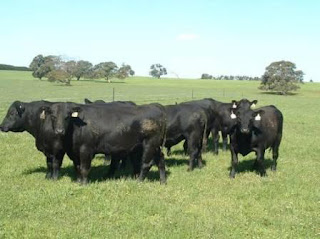 |
| Tokyo's mayor gave 3,000 cherry trees to Washington, D.C. in 1912 as a gesture of friendship between Japan and the U.S. |
As children, we tend to view our parents as other-worldly people vastly different from ourselves. They wield such power in our lives that we set them atop towering pedestals that we ourselves patiently polish and raise to sometimes dizzying heights. Some pedestals come crashing down abruptly. Others grow so lofty that we are forever distanced from their tenants and we are left never really knowing who that parent truly was, what they hoped for and dreamed of and whether or not they approved of us.
Over the past several years, I've been experiencing a growing affinity for my elders. As I approach and overtake the moments within their lives when I first met them, I'm blessed with insights that infuse my recollections with color and enrich my experiences.
I've found that context is one of the greatest contributors to insight. In other words, I can learn more about my parents and grandparents when I consider the events within their lives in the context of their times. For example, my great grandfather Sergio Joaquin emigrated from the Azores to Boston, Massachusetts in 1852. On the surface, that's a pretty pedestrian fact. But when you consider that the Azores experienced earthquakes in 1841, 1848 and 1852 and the fact that he was only 14 when he left, it suddenly becomes a drama that is pregnant with possibilities. It's like picking up a box of crayons and coloring inside the lines of a black and white drawing to create a portrait that's relatable and whose texture and depth establish a connection and--yes--inspire insight.
Building context in this way contemporizes the past. I can build my understanding of Sergio by comparing his immigration experience--choosing to leave his home in the wake of a natural disaster--with my experiences during Hurricane Wilma. That comparison creates an emotional connection with him, and I find myself admiring him for having the courage and foresight to journey alone to a foreign country and make a new start at such a young age.
I'm using context in this manner a lot lately because this is an important year for me and my immediate family. I'm 50 this year--the same age my father was when I was born--and next month marks my father's 100th birthday. Surprisingly enough, when I look at the events of 1912, I see a very familiar world.
One of the most significant events of 1912, of course, was the tragic demise of the Titanic, echoed by the recent sinking of the Costa Concordia off the coast of Italy. Other echoes abound. Italian forces bombarding Beirut, rapid change in Asia with the rise of the Republic of China, social activism in Africa with the founding of the African National Congress (ANC)--the political and social hotspots of 100 years ago are all too familiar today.
There were new and exciting applications of new technologies as well, such as the first parachute jump from a moving plane (Albert Berry); the first English Channel crossing by a female pilot (Harriet Quimby); and the first non-stop flight from Paris to London (by Henri Seimet in three hours).
The year had its heroes (Roald Amundsen announced he had reached the South Pole), its stars (Sarah Bernhardt starred in Les Amours de la reine Élisabeth), its tycoons (Carl Laemmle incorporated Universal Pictures) and its tragic figures (Robert Scott and his team perished in their disastrous bid for Amundsen's prize). It even had U.S. military action on two fronts with the U.S. Marines dispatched to Cuba and Nicaragua.
In short, I've found that 1912 was a lot like 2012 in very many ways and that my father's world was very similar to the world in which I live today. And that makes me believe that maybe he and I weren't so different after all.
Editor's note: My cousin Ruthie has pointed out that, while I was writing the above entry, she was marking her father's 106th birthday. RAF (as she and her sisters called him) was a legendary figure in his own right having graduated from Harvard University at the age of 20. Following the sudden death of our grandfather, RAF ensured that his brothers, sister and mother survived the Great Depression by putting his own ambitions and aspirations aside, moving back home with his new wife, Ellen, and dedicating himself to his family.




